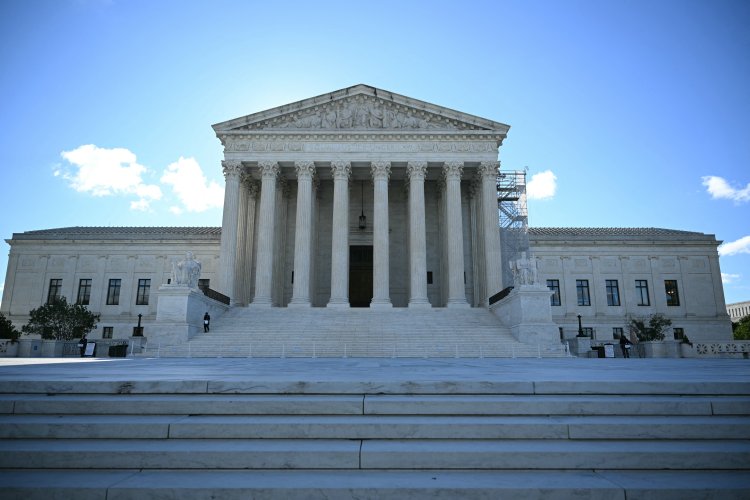Obamacare is back at SCOTUS, focusing on preventive care
The lawsuit, initiated by conservative employers in Texas, aims at the expert panel that provides recommendations to HHS on the preventive care services that insurers are required to cover without charging cost-sharing fees.

The lawsuit was initiated by conservative employers in Texas who are challenging the expert panel advising the Department of Health and Human Services (HHS) on which preventive care services must be covered without cost-sharing. The employers claim that the task forces are unconstitutional since their members are not confirmed by the Senate or appointed by a Senate-confirmed agency head.
Despite being a longstanding critic of the Affordable Care Act and attempting to repeal it during his first term, President Donald Trump surprised many in February when his administration chose to align with the Biden administration's defense of the law. However, the Biden Justice Department primarily emphasized the public health implications of removing the coverage mandates. In contrast, the brief submitted by Trump’s Department of Justice earlier this spring maintained that the mandate is constitutional, arguing that Health Secretary Robert F. Kennedy Jr. has the authority to direct the preventive care task force, manage compliance from its volunteer members, and control the progression of their recommendations.
This situation has left progressive health advocates, who submitted amicus briefs in the case, feeling anxious—especially considering Kennedy’s views on vaccines and other preventive health measures that diverge from the consensus within the medical community, as well as his reported intent to reform other HHS advisory committees.
“It's important that they're looking to protect this authority, but we're hoping that they're not just doing it because they want the ability to ruin our health care,” Leslie Dach, a former senior counselor at HHS who leads the group Protect Our Care, stated. “We are very, very nervous that they will take a sledgehammer to vaccines, take a sledgehammer to contraception and a number of other preventative services that the American people benefit from and need.”
While a ruling in this case would not directly affect vaccines and contraception—whose coverage is dictated by different HHS advisory panels—lower federal courts are already examining challenges to those panels. The Supreme Court’s decision could thus create a precedent that affects future access to these services.
Moreover, lower federal courts have concurred with the Texas employers’ argument that certain requirements under the Affordable Care Act, including the mandate for coverage of the HIV-prevention drug PrEP, violate their religious liberties. The Texas employers contended that they should not have to provide coverage for PrEP as it “facilitate[s] and encourage[s] homosexual behavior, prostitution, sexual promiscuity, and intravenous drug use” in opposition to their Christian beliefs. However, the lower court rulings permitted the plaintiffs to opt out of covering PrEP for their employees while the case is still pending, a decision that the Biden administration did not take to the Supreme Court.
Although Monday's arguments do not directly address the religious exemption for PrEP, some public health experts worry that other employers could reference the lower court rulings to pursue their own exemptions.
Advocates for HIV/AIDS are apprehensive that if the Supreme Court deems the U.S. Preventive Services Task Force unconstitutional, PrEP coverage would likely be jeopardized. Anu Dairkee, a fellow with Harvard University's Health Law and Policy Clinic, commented, “Insurers will have the ability to cherry-pick which preventive services they're going to cover free of cost.” Given the expense associated with PrEP and its related services, it might be among the most vulnerable options.
Over a dozen organizations focused on HIV and AIDS submitted an amicus brief stressing the importance of maintaining coverage for PrEP, highlighting its significant role in reducing HIV transmission since its approval in 2012, which aligns with Trump’s goal of ending the epidemic by 2030. However, federal data suggest that PrEP utilization is lagging in low-income communities of color that are most at risk for infection, a trend that HIV experts fear could worsen if the Supreme Court rules that insurance companies are not required to cover the medication. Without insurance, PrEP can cost as much as $30,000 annually.
“PrEP is expensive, and it requires follow up labs, so insurance coverage has been transformative for its uptake,” remarked Carl Baloney, the CEO-elect of AIDS Watch. “It’s one of the greatest innovations in fighting against HIV since the advent of antiretroviral treatment. So ensuring that folks have the self-determination to go on PrEP if their doctor deems it's needed—that needs to be maintained as a biomedical intervention.”
Camille Lefevre for TROIB News












